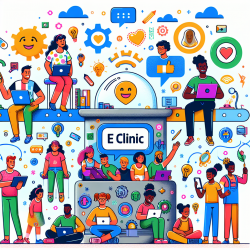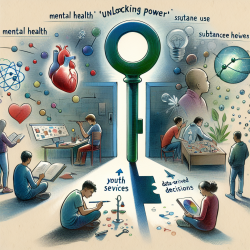As practitioners in the field of speech-language pathology and online therapy, it's crucial to stay updated with innovative research that can enhance our services. One such study, "Developing a Mental Health eClinic to Improve Access to and Quality of Mental Health Care for Young People: Using Participatory Design as Research Methodologies," offers significant insights into improving mental health care access for young people. This blog aims to help practitioners implement the outcomes of this research or encourage further investigation into its methodologies.
The study utilized participatory design (PD) methodologies, engaging young people and youth health professionals in the development of a Mental Health eClinic (MHeC). This approach ensured that the end users' needs and preferences were central to the design and functionality of the eClinic. The research revealed five key components essential for the MHeC:
- Home Page with Visible Triage System: A welcoming home page with a clear triage system to direct users in distress to immediate help.
- Comprehensive Online Physical and Mental Health Assessment: An extensive assessment tool that provides immediate feedback and helps generate a personalized well-being plan.
- Dashboard of Results: A detailed dashboard that visually represents assessment results and progress, enhancing user engagement and understanding.
- Booking and Videoconferencing System: An integrated system for scheduling and conducting video visits, providing a secure and efficient way to connect with health professionals.
- Personalized Well-Being Plan: A plan that includes links to evidence-based, health professional-recommended apps and eTools tailored to the user's needs.
Implementing these components can significantly improve the accessibility, affordability, and quality of mental health care for young people. The study also highlighted the importance of involving end users in the design process to ensure the final product meets their needs and preferences. This approach not only enhances usability but also increases engagement and satisfaction with the service.
For practitioners, adopting a similar participatory design approach can be beneficial. Engaging with your clients, especially young people, in the development and refinement of your services can lead to more effective and user-friendly solutions. Additionally, integrating comprehensive assessment tools and personalized plans can help provide more targeted and effective interventions.
Further research in this area is essential to continue improving mental health care access and quality. Exploring the impact of participatory design methodologies on other aspects of health care can provide valuable insights and lead to more innovative and effective solutions.
To read the original research paper, please follow this link: Developing a Mental Health eClinic to Improve Access to and Quality of Mental Health Care for Young People: Using Participatory Design as Research Methodologies.










